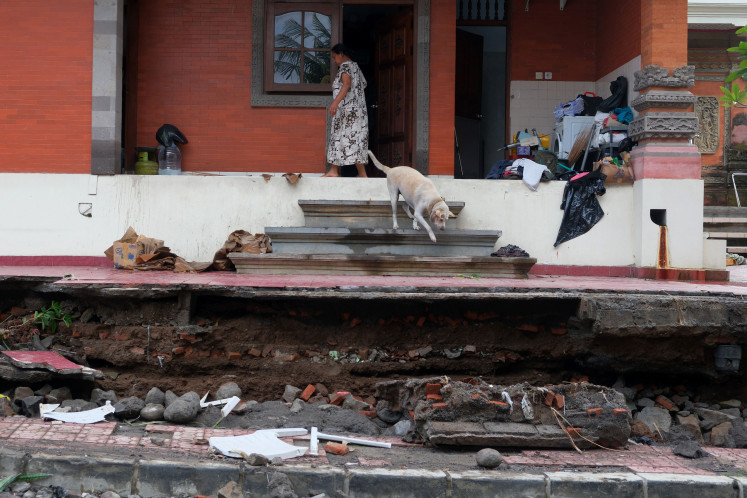Popular Reads
Top Results
Can't find what you're looking for?
View all search resultsPopular Reads
Top Results
Can't find what you're looking for?
View all search resultsICRC closing its offices in Papua and Aceh
The International Committee of the Red Cross (ICRC) said it was closing its offices in Papua and Aceh while at the same time negotiating new work arrangements, in response to the Indonesian government objecting to the organization's presence in the two provinces
Change text size
Gift Premium Articles
to Anyone
The International Committee of the Red Cross (ICRC) said it was closing its offices in Papua and Aceh while at the same time negotiating new work arrangements, in response to the Indonesian government objecting to the organization's presence in the two provinces.
Spokesperson for ICRC Layla Berlemont Shtewi said Friday the ICRC had started closing down its offices around two weeks ago, expecting its activities in those provinces to completely wind up within the next week.
"We are closing down the offices. It's a process. The government wants us to close the offices in Jayapura *capital of Papua province* and Aceh, while we're waiting for negotiations *on the new work arrangements* to conclude," she told The Jakarta Post.
Indonesia ordered the ICRC to close its offices in Papua and Aceh, saying the organization had been operating in the two provinces without proper legal documentation and had failed to comply with new official operational procedures.
"They do have what they call regional offices in Aceh and Papua. We never agreed to these *regional offices* and have reminded them about this. The 1977 and 1987 agreement only stated the ICRC would operate one office in Jakarta, which would also cover Australia, Brunei Darussalam, Cook Island, Micronesia, Fiji, New Zealand and other countries," Foreign Ministry spokesperson Teuku Faizasyah said.
Faizasyah also said the government has raised objections to ICRC activities in both provinces, as they did not provide the Foreign Ministry with significant information about their operations.
"For example, they should have reported their visits to prisons in Papua to the Foreign Ministry. They only obtained permits from the Justice and Human Rights Ministry."
Reuters reported the ICRC ran sanitation projects in Papua and had also visited prisoners, including jailed members of the secessionist Free Papua Movement (OPM).
Located in the most eastern part of Indonesia, the resource rich province of Papua has been the focus of a low-level separatist insurgency.
Faizasyah said the government had asked the ICRC to agree on new terms of reference in 2004, under which there would be better coordination between the government and the ICRC, but the international organization never responded.
"The ICRC operations in Indonesia are based on agreements made in 1977 and 1987. Many things have changed under the new government, including the fact that we do not recognize the term *political prisoners' anymore, which has been a highlight of the ICRC's *advocacy* work worlwide," he said.
The ICRC employs 26 local staff and two foreign workers in Aceh, as well as 14 local staff and two foreign workers in its Papua office.










